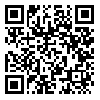Fri, Apr 19, 2024
[Archive]
Volume 9, Issue 3 (9-2017)
2017, 9(3): 47-58 |
Back to browse issues page
Download citation:
BibTeX | RIS | EndNote | Medlars | ProCite | Reference Manager | RefWorks
Send citation to:



BibTeX | RIS | EndNote | Medlars | ProCite | Reference Manager | RefWorks
Send citation to:
Hajary H, Ahmadi A, Khani M. A novel approach for learning improvement in interactive classroom environments using learning automata . International Journal of Information and Communication Technology Research 2017; 9 (3) :47-58
URL: http://ijict.itrc.ac.ir/article-1-34-en.html
URL: http://ijict.itrc.ac.ir/article-1-34-en.html
Abstract: (2438 Views)
Determining the best way of learning and acquiring knowledge, especially in intelligent tutoring systems has drawn researchers' attention during past years. Studies conducted on E-learning systems and strategies proposed to improve the quality of these systems, indicate that the main learning resources for students in an educational environment are provided by two crucial factors. The first is the teacher who can basically influence students’ success through demonstrating her ability and skills, and the second is interaction among students. In this article, a new modeling approach is presented for improving learning/teaching models as well as interaction among learners, from which the most benefit can be derived by learners. The proposed model uses the learning automata for modeling the teacher and her behavior in such a way that she can also learn and teach better at the same time, thus improves her teaching skills. The model also uses cellular learning automata in order to model behavior of the learners as well as interactions between the learners for knowledge acquisition. The results indicate that in addition to teacher’s skills, the interaction/communication among learners can significantly improve the quality and speed of learning as compared with previous methods.
Type of Study: Research |
Subject:
Information Technology
| Rights and permissions | |
 | This work is licensed under a Creative Commons Attribution-NonCommercial 4.0 International License. |




